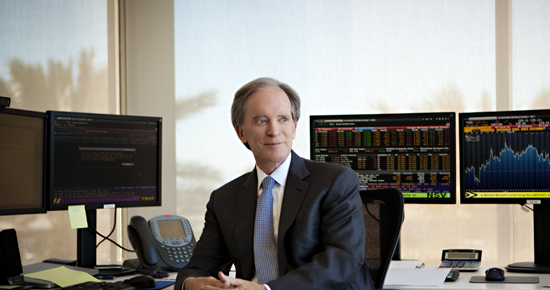|
Bill Gross, one of the world’s most famous and influential money managers, has retired at the age of 74.
A specialist fixed income investor, nicknamed the Bond King, Gross is best known for co-founding Pimco Asset Management, and for managing the Pimco Total Return fund. There is no doubting his personal success. Under his leadership, Pimco became the biggest fixed investment firm in the world. Forbes estimates his personal wealth at around $1.5 billion. Gross managed to keep his investors happy for most of his career. From June 1987 to September 2014, the Pimco fund was the sector’s star performer, beating the Bloomberg Barclays US Aggregate Bond Index by around 1% a year, which for a bond manager is a large margin. But then came an unravelling. Gross was ousted by his colleagues at Pimco, who didn’t find him easy to work with, and he moved to Janus Henderson. His performance in four years there was less than stellar. He underperformed the index by some distance, and in 2018 his fund lost almost 4%. By the start of this year, it had more than halved in size to less than $1 billion — and most of that money was his own. Over his entire career, Bill Gross beat the index in more years than he was beaten by it. That might seem like a modest achievement; after all, the whole reason for paying active management fees is the hope of beating the market. Compared to his peers, however, Gross’s long-term record is very impressive. But does that really make him a star? And, more to the point, was he genuinely skilled or did he just get lucky? Distinguishing luck from skill in money management is extremely difficult. Depending on which statistician you speak to, it can take decades or even hundreds (yes, hundreds) of years of data to demonstrate skill beyond reasonable doubt. Gross certainly started bond investing at just the right time — the beginning of a bull market that lasted more than 30 years and sent prices soaring. Nearly all bond investments over that period grew in value. Gross was also a risk taker, preferring lower-quality corporate bonds to safer government bonds. Measured by annualised standard deviation, he took around 10% more risk than the index — 4.3% compared with 3.9%. The more risk a manager takes, the higher their returns are likely to be, and so it proved with Gross. There are various theories as to why his performance tailed off at Janus Henderson. The bond markets became more volatile for a start. Gross also moved away from a “total return” approach to what’s known as an “unconstrained” strategy, which may have suited him less well. Whatever the reason, Gross, like countless “star” managers before him was unable to replicate the success that had earned him that stellar status in the first place. How, then, will he be remembered? Of all the assessments made of his career in recent days, perhaps the most telling was by Gabriel Altbach, from the consultancy Asset Management Insights, in the Financial Times. “The industry owes Bill Gross a giant debt of gratitude,” said Altbach. “He made bond investing headline news and helped pave the way for countless other fund companies and portfolio managers.” Perhaps that says it all. Investing and asset management shouldn’t be headline news at all — bond investing especially. The financial media makes it far more exciting and glamorous than it really should be. It also loves characters, and Gross was certainly one of those, with his little eccentricities, his colourful investment letters and his juicy quotes. As for Pimco and Janus Henderson, Gross was their prize asset. Nothing attracts assets like a star manager, so no wonder their employers are usually only too happy to play along. Was Bill Gross genuinely skilful? We can’t be sure. Will there be another Gross? By the law of averages, probably yes. Can you, your adviser or favourite Sunday newspaper identify the next Gross in advance? Don’t even think about it. When it comes to bonds, it’s very hard to make a case for investing in anything other than a low-cost index fund or ETF. |
ELSTON RESEARCHinsights inform solutions Categories
All
Archives
July 2024
|
Company |
Solutions |
|


 RSS Feed
RSS Feed